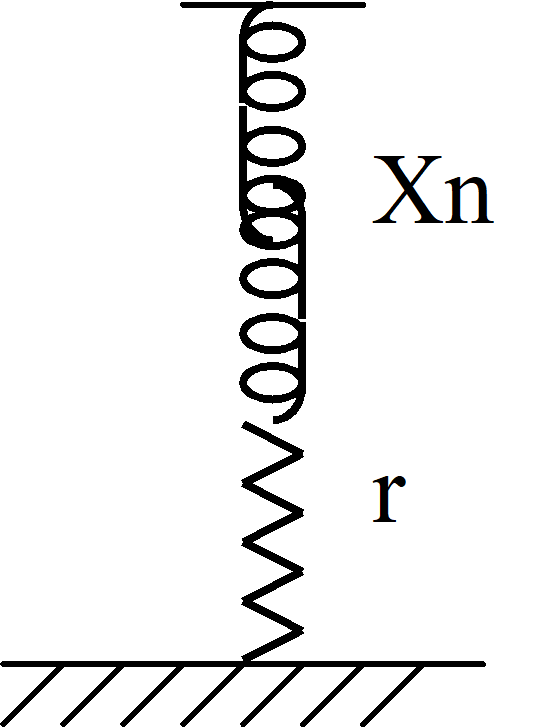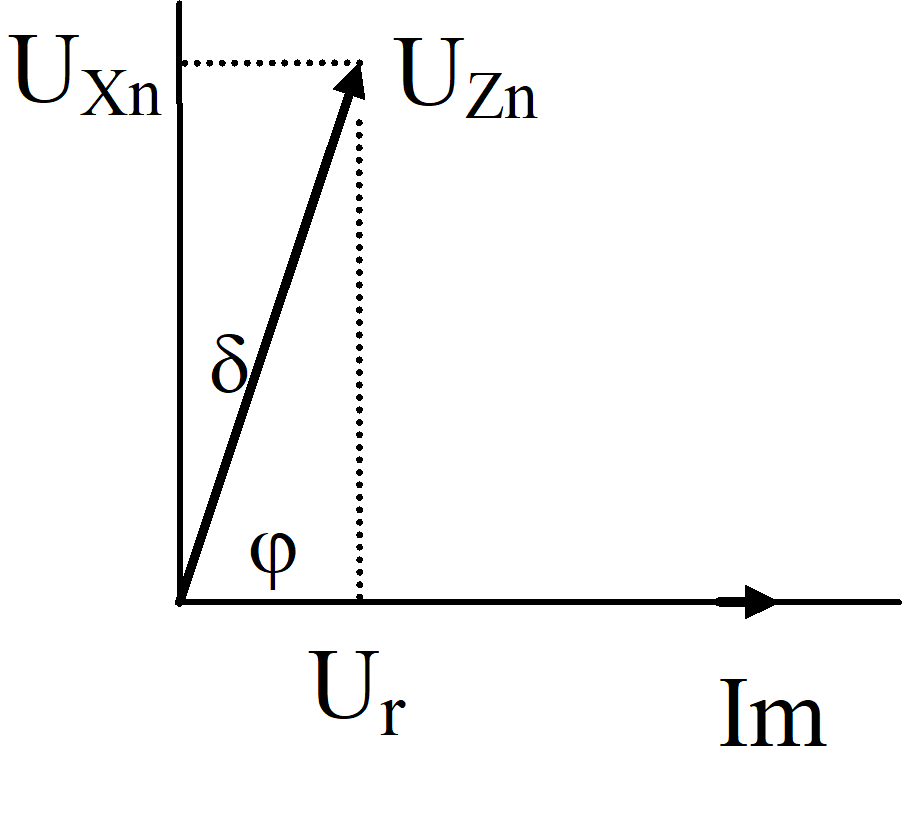Series representation
The active losses in a reactor can be represented as a small resistance, r, in series with the reactance, Xn, where
r = p Xn (1)
p = tan б (= r/Xn) = loss factor of the reactor (= r I²m / (Xn I²m)
б = 90° - φ = loss angle of the reactor
¦Zn¦= Xn (1 + (r / Xn)² )½ = Xn (1 + p² ) ½= Um / √3 / Im
Um is the reactor rated voltage (phase-phase voltage) ;
UZn│= Um/√3
Im is the rated current of the reactor


Which gives
Zn = r + jXn
Yn = 1 / (r + jXn) = (p Xn - jXn) / (p² X²n + X²n)
= (p - j) / ( p²+ 1) / Xn
Set equivalent R’ and X’
![]()
Yn = 1/R’ - j 1/X’
Identification gives… (2)
1/R’ = p / ( p²+ 1) / Xn ; R’ = (p²+ 1) / p Xn (Xn / p = X²n / r if p << 1)
1/X’ = 1 / (p²+ 1) / Xn ; X’ = (p²+ 1) Xn ( ≈ Xn)
Stored as neutral point data RSH( ) = R’ ; XSH( ) = X’
Parallel representation
The losses can also be directly represented as a large resistance R in parallel to the reactance X.
Loss factor p = R IR² / (X IX²) ![]()
= X / R (3)
where…
IR = jX / (R + jX) I ; IX = R / (R + jX) I
IR² = IR I*R ; IX² = IX I*X ; IR²/IX² = X² / R² = p², i.e. p = ¦IR¦/¦IX¦
From (1) and (3) can the following be obtained…
p = r / Xn = X / R = ¦IR¦ / ¦IX¦) if p << 1 then Xn = X
R¦IR¦= X¦IX¦ = Um / √3 (4)
Re-calculation of parallel- to a serial circuit gives (re-calculation of serial- to parallel circuit in (2))
Z = r + jX ≡ RjX/(R+jX) = (RX² + j R²X) / (R² (1+X²/R²))
= X²/ R + jX if p << 1
For the parallel circuit can X be obtained from rated data according to… (5)
¦IX ¦X = ¦R / (R + jX) ¦ Im X = 1 / (1 + p²)½ Im X = Um / √3
X / (1 + p²)½ = Um / √3 / Im
To summarize, with references to (1) to (5) this shows that if p << 1, then a serial representation, r, of the losses is equivalent to a parallel representation R = X² / r and a parallel representation R is equivalent to a serial representation r = X² / R.
Independent of the size of p, it is possible to optionally represent the active losses via serial- or parallel presentation. For large p-values the reactance Xn and X will be different, but X’ and X will be the same and hence also R' and R.
X’ = (1 + p²) Xn = (1 + p²) / (1 + p² )½ Um / √3 / Im
= (1 + p² )½ Um / √3 / Im = X
The reactive power for serial QS- and parallel QP – representation
QS = Xn Im² = Um / √3 / (1 + p² )½ Im
QP = X I² X = X R²/ (R²+ X²) Im²
= X Im² / (1 + p²) = Um / √3 / (1 + p² )½Im